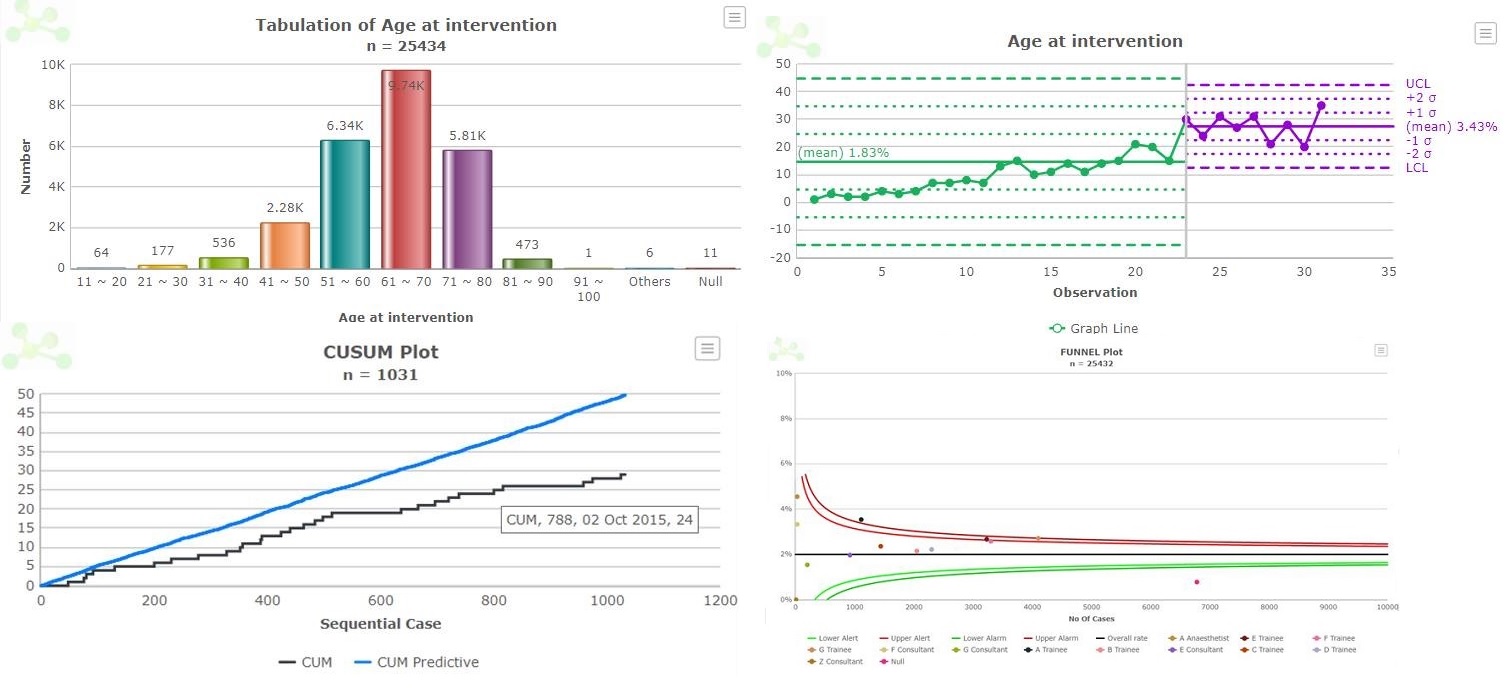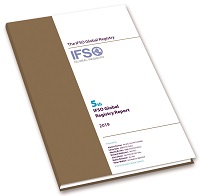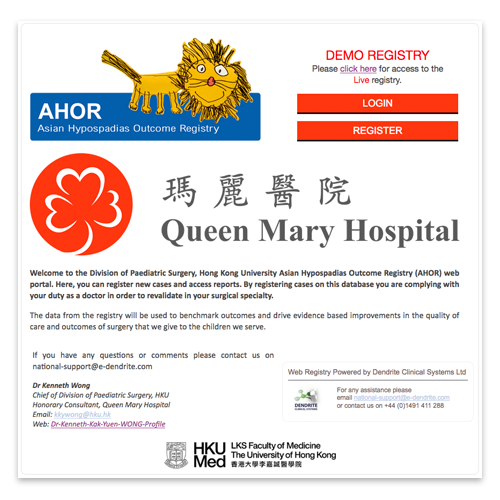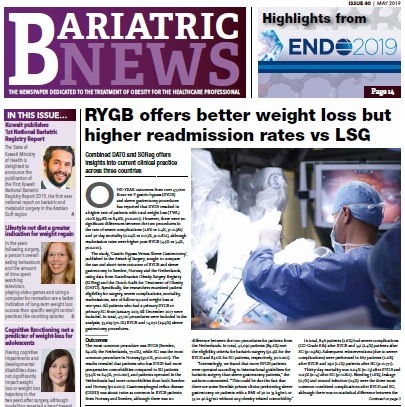
Hospital Systems
Dendrite enables clinicians to create and manage their own databases to collect, analyse and report local data – for clinical audit, research and benchmarking to track and improve clinical practice and outcomes. Dendrite’s clinical database system can be used by individual departments (e.g. to track a particular patient cohort or procedure) as well as for multi-disciplinary teams and departments tracking patients along the treatment pathway.
Translating data into meaningful insights
Collecting good quality data is important, but converting this into meaningful insights is where the real value lies. Dendrite’s Intellect system makes the analysis and reporting of data simple and clinically meaningful. The system includes inbuilt clinical outcome tracking software, providing users with the ability to track time-related clinical data for analysis of clinical events (e.g. referral, clinic visit, diagnosis, procedure, follow-up), all within a single software environment. Through the use of in-built risk stratification algorithms clinicians can benchmark their results against national and international standards, adjusted for severity of illness using well-established statistical methods.
Flexible, innovative and intuitive solutions
Built to work within almost any imaginable clinical scenario and designed to support multiple specialties, Dendrite’s system can be customised through the creation of structured clinical datasets de novo. Customers have access to an extensive library of existing clinical databases for various specialties that can be loaded and adapted for your local data collection, analysis and reporting. Many of the datasets in the library are based on nationally defined designs and definitions and are kept up-to-date by Dendrite.
Integration with other systems
Dendrite’s clinical database system is highly interoperable and can be integrated with other hospital systems to automatically capture and validate relevant data (e.g. patient demographic, ADT data, laboratory, pathology etc). Dendrite supports all of the standard data transfer protocols and have a highly skilled and experienced team of software support programmers that can intelligently select the appropriate piece of data to include in the clinical record.
Data transfers can be bi-directional to allow interactive communication, eg. email requests for PROMS with on-line responses.
Clinical documents can be passed directly to the EPR or document management systems to save clinical time.
Unique data analysis and reporting
Dendrite’s clinical database system includes four types of analytics and reports:
1. Integrated data analysis tools.
2. Visual dashboard (example below).
3. Data export and filtering.
4. Direct ODBC connection with industry standard reporting tools, eg. Microsoft SRS, Crystal Reports.
5. Clinical documents such as operation notes and discharge summaries.

Dendrite’s unique flexible data analysis tools allow users to easily build their own visual analysis graphs with their data including:
- Creating patient cohorts
- Building (and saving) new graphs
- Modifying existing graphs (excluding/filtering data)
- Automatically calculating key statistical values (e.g. median, σ, percentile, shift, etc.)
- Saving and exporting graphs/tables in various formats (PDF, PNG, JPG, SVG and XLS) e.g. for reports, presentations.
This tool covers different types of graphs, including:
- Distribution analysis (analysis by one field, e.g. age distribution)
- Cross-tabulation (analysis by two fields, e.g. age by gender)
- Multi-cohort analysis (graphs combining multiple cohorts)
- Run analysis
- Shewhart analysis
- XmR
- CUSUM analysis
- VLAD
- Actuarial curves
- Funnel plots
- Timelines
- Events analysis
- Advanced analysis
Please contact us for a system demonstration.
 The Fifth IFSO Global Registry Report (2019) has been released at the XXIV World Congress of the International Federation for the Surgery of Obesity and Metabolic Disorders (IFSO) in Madrid, Spain. Published by Dendrite Clinical Systems, under the auspices of the IFSO, the publication reports data from more than 60 countries on over 833,000 operations including baseline obesity-related disease, operation types, operative outcomes and disease status after bariatric surgery.
The Fifth IFSO Global Registry Report (2019) has been released at the XXIV World Congress of the International Federation for the Surgery of Obesity and Metabolic Disorders (IFSO) in Madrid, Spain. Published by Dendrite Clinical Systems, under the auspices of the IFSO, the publication reports data from more than 60 countries on over 833,000 operations including baseline obesity-related disease, operation types, operative outcomes and disease status after bariatric surgery. Dendrite Clinical Systems has announced the installation of its National Bariatric Surgical Registry software at the Sheik Al Jaber Al Sabah Hospital, in Kuwait. The Sheik Al Jaber Al Sabah Hospital, opened by His Highness the Amir Sheikh Sabah Al-Ahmad Al- Jaber Al-Sabah in November 2018, consists of five towering 10-stories structures built on a 220,000 square meters and has a hospital bed capacity of around 1,160 with 36 operation rooms, a medical centre, a helipad and a parking lot accommodating some 5,000 vehicles.
Dendrite Clinical Systems has announced the installation of its National Bariatric Surgical Registry software at the Sheik Al Jaber Al Sabah Hospital, in Kuwait. The Sheik Al Jaber Al Sabah Hospital, opened by His Highness the Amir Sheikh Sabah Al-Ahmad Al- Jaber Al-Sabah in November 2018, consists of five towering 10-stories structures built on a 220,000 square meters and has a hospital bed capacity of around 1,160 with 36 operation rooms, a medical centre, a helipad and a parking lot accommodating some 5,000 vehicles. Dendrite Clinical Systems and the Queen Mary Hospital in Hong Kong have launched the Asian Hypospadias Outcome Registry (AHOR), is a prospective web-based patient registry that will collect, record and analyse the treatment and outcomes of patients undergoing surgical repair.
Dendrite Clinical Systems and the Queen Mary Hospital in Hong Kong have launched the Asian Hypospadias Outcome Registry (AHOR), is a prospective web-based patient registry that will collect, record and analyse the treatment and outcomes of patients undergoing surgical repair. Dendrite Clinical Systems has launched its ‘One-button push’ outcomes module, allowing clinicians to instantly produce their outcomes with the push of a single button. This enhancement is the latest in a series of advances incorporated into the company’s clinical registry software.
Dendrite Clinical Systems has launched its ‘One-button push’ outcomes module, allowing clinicians to instantly produce their outcomes with the push of a single button. This enhancement is the latest in a series of advances incorporated into the company’s clinical registry software. Dendrite Clinical Systems, the publisher of Bariatric News, is pleased to announce issue 40 of the newspaper is now available to view/download. The newspaper reports on research, technology, events and policy in the bariatric specialty, the latest clinical studies, policy changes and product news, the latest meetings and events, interviews prominent bariatric experts, and host debates between specialists on controversial topics.
Dendrite Clinical Systems, the publisher of Bariatric News, is pleased to announce issue 40 of the newspaper is now available to view/download. The newspaper reports on research, technology, events and policy in the bariatric specialty, the latest clinical studies, policy changes and product news, the latest meetings and events, interviews prominent bariatric experts, and host debates between specialists on controversial topics. Dendrite Clinical Systems – in collaboration with Haemotology Cancer Care (UCLH Charity), the Royal Free Charity, HaemSTAR (an organisation researching non-malignant haematology) and MPN Voice – have launched the MASCOT (Myeloproliferative Neoplasm Splanchnic Vein Thrombosis, MPN-SVT) Registry, a UK wide registry for patients with myeloproliferative diseases suffering from splanchnic or abdominal vein thrombosis.
Dendrite Clinical Systems – in collaboration with Haemotology Cancer Care (UCLH Charity), the Royal Free Charity, HaemSTAR (an organisation researching non-malignant haematology) and MPN Voice – have launched the MASCOT (Myeloproliferative Neoplasm Splanchnic Vein Thrombosis, MPN-SVT) Registry, a UK wide registry for patients with myeloproliferative diseases suffering from splanchnic or abdominal vein thrombosis.


